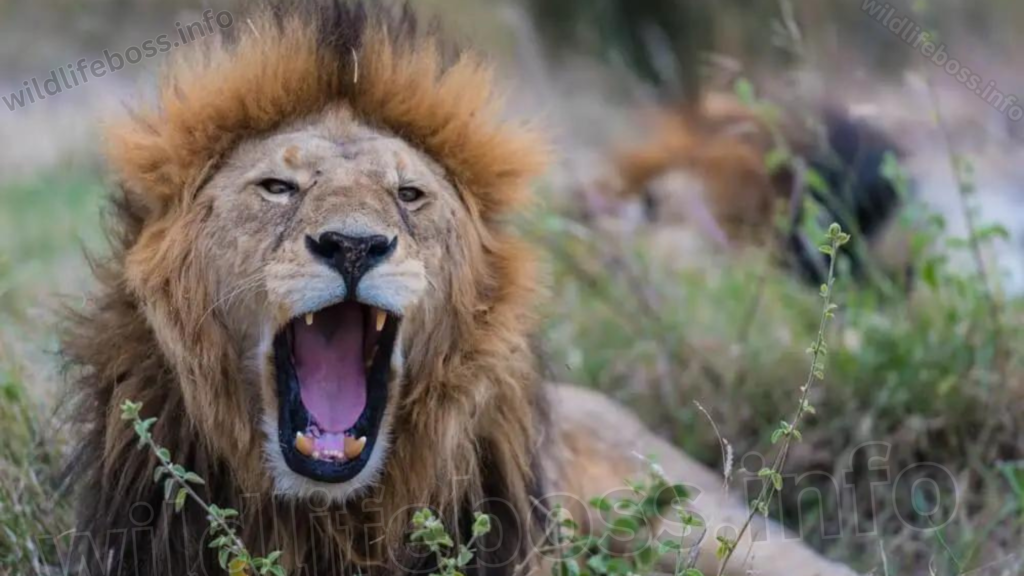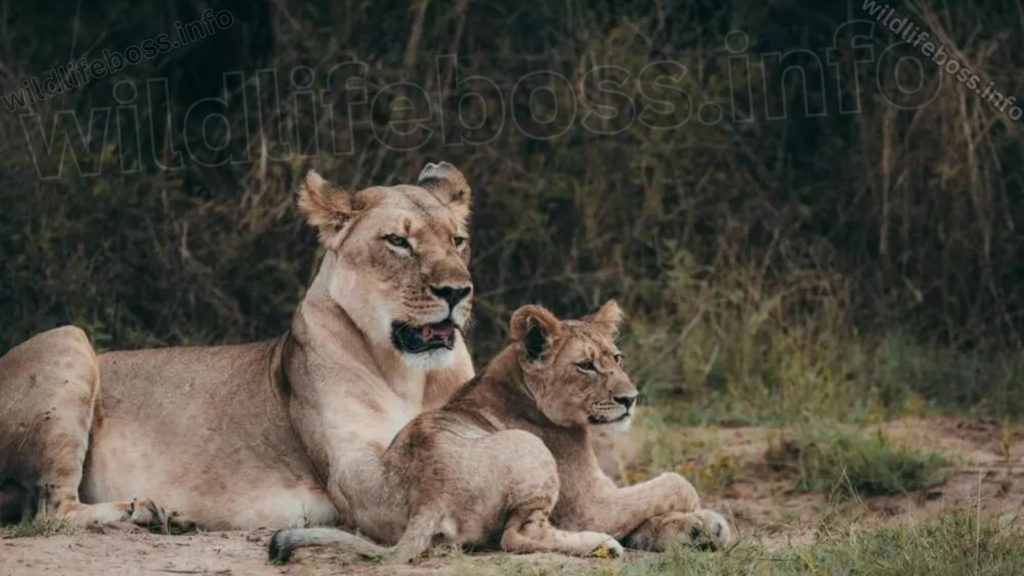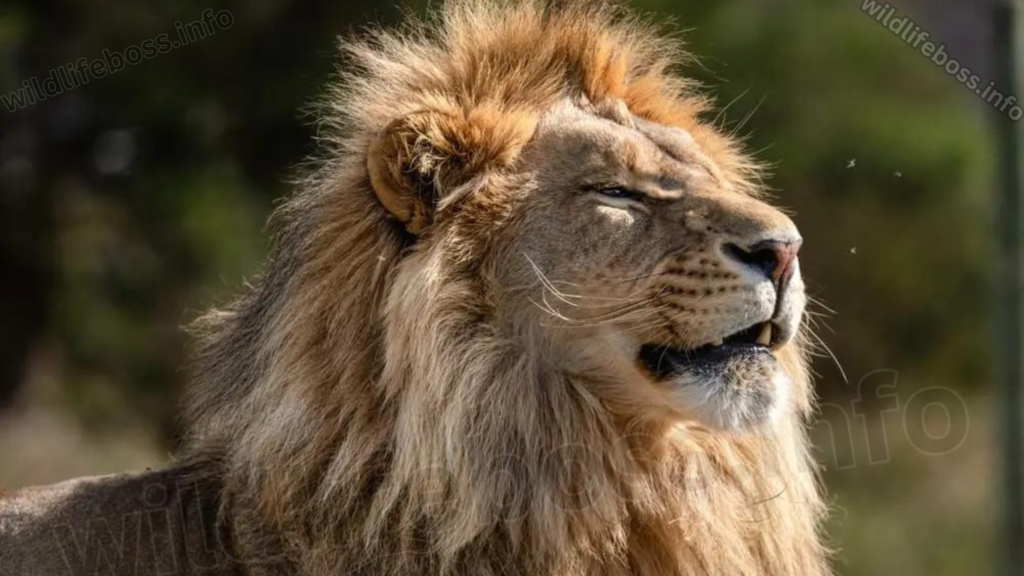A lions roar is a very distinct sound. It may have been said at the start of an MGM Pictures production, by a lion in the zoo, or in an internet video.
Lions may communicate in a number of ways with their roars.
Lions use their roars to warn other pride members, ward off intruders, establish dominance, and help them find other pride members when it’s dark outside or they’re far away. A lion’s square-shaped vocal folds allow its roar to reach 114 decibels, which humans can hear up to five kilometers away.
Continue reading to find out why lions roar, when they roar most frequently, and how they produce the sound.
The Reasons Behind A Lions Roar

A lion’s roar has several purposes, including as alerting the pride, frightening off intruders, showing authority, and directing group members.
1. Scare Away Intruders
Male lions may easily frighten off intruders from their area with their roar. Lion prides are known to reside in the same region for several generations at a time, and they are incredibly territorial animals.
While the ladies defend the area from rival females, the males guard the pride against invading coalitions. Sometimes, Prides roar in group at times.
2. Send A Warning To The Pride
In order to warn the other lions in the pride of impending danger, males also utilize their roar. This may be people approaching, or it might be another group of lions encroaching on the area. Prides of lions are very significant social organizations that offer members security.
They can have up to forty lions in them, and they engage in a variety of activities together, such cub raising, hunting, and territorial defense.
Roaring to warn the other pride members is a crucial communication tool that serves to keep the other members of the group safe by sending a clear message to them.
3. Display Dominance
Males used their roars as a means of showing their power and strength over other men. A roar is one of the ways coalitions, or groups of males, establish their power over a new pride.
4. Locate Pride Members
Roaring is more than simply a means of showing positions of power, frightening off intruders, and alerting the pride of danger. Additionally, it’s a technique to find distant pride members.
Being close-knit communities that remain together for a significant portion of their life, prides need to be able to communicate even when they are dispersed across great distances in order to hunt or defend their territory.
In the dark, when there is little light, it’s also a means of locating proud members.
When Lions Roar

According to a research, lions roar most often at night, and this precise moment is dawn. It’s interesting to note that lions roar louder when the environment is conducive to sound propagation.
This indicates that lions will roar louder in colder climates, with higher air humidity and lower wind speeds.
Outside of the boundaries of their pride’s native range, lions seldom let forth their roars. They will most likely roar often in the vicinity of water supplies.
How Lions Roar

Lions’ distinctively formed vocal folds allow them to roar extraordinarily loudly. Lions have square-shaped vocal folds as opposed to the triangular-shaped vocal folds of most other cats and animals.
The voice chords are more stabilized by this square form. They can react to the air going through them more skillfully as a consequence.
Lions are able to roar loudly without overstressing their lungs because of this.
Lions are likewise flattened and have a square form due to fat deposits deep within the ligaments supporting their vocal folds.
The sound emitted by a roaring lion may reach 114 dB, which is the same decibel level as certain rock concerts! The roars of lions may be heard up to five kilometers distant.
The roar of a male lion is stronger and louder than that of a female.
The average roar of a lion lasts between thirty and forty seconds. The sound sequence begins with numerous lengthy groans, then several shorter ones.
Conclusion
Lions roar for a variety of causes. They start by roaring to alert the other members of the pride to a possible threat. They then roar to frighten off trespassers and defend their domain.
A lion’s roar is another way to show off its power. Lastly, when lions are separated by distance or have poor vision in the dark, they will roar to find other members of their pride.
The highest level of a lions roar, which can be heard up to five miles away, is 114 dB. Lions have square-shaped vocal folds, which allow them to produce this amazing sound with little effort.
Read More About Lions:
Lion Vs Tiger: 12 Differences & Strength Facts
Mountain Lion Population By State: 2024 Best Data [Statistics]
How High Can Lions Jump? best Comparisons (With Photos)


Pingback: Why Lions Are King Of The Jungle?(7 Best Reasons Explained) - Wildlifeboss.info